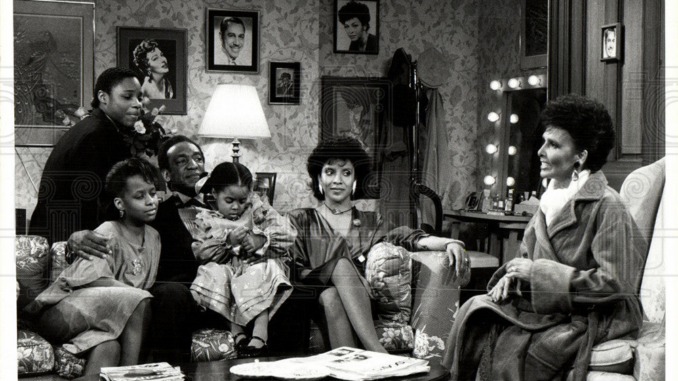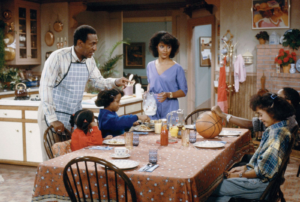
When The Cosby Show first aired in 1984, it was not only a sitcom; it was a cultural phenomenon. While many people saw it as a traditional family comedy, it was far more radical and daring than most viewers realized at the time. From challenging racial stereotypes to taking bold stances on social issues, the show reshaped American television in ways that continue to be felt today.
1. How The Cosby Show Smuggled Radical Ideas into Mainstream TV
At its core, The Cosby Show was about portraying an African-American family in a positive and aspirational light. Prior to this, African-American characters on TV were mostly depicted as struggling or poor, often portrayed through a lens of adversity. The Cosby Show shattered that stereotype by presenting the Huxtables as a highly successful, middle-class family. Dr. Cliff Huxtable, played by Bill Cosby, was a respected physician, and his wife, Clair, was a successful attorney. They lived in an upscale Brooklyn townhouse, had educated children, and were portrayed as loving, supportive, and relatable.
But what made this depiction even more revolutionary was how the show subtly addressed the social and political issues of the time, particularly the complexities of race and class. The Huxtables weren’t just a wealthy Black family—they represented a counter-narrative to the common tropes about African-American life in media. The show’s creators were conscious of the broader cultural conversations surrounding race and inequality, and used the sitcom format to discuss these topics in ways that were accessible and entertaining.
For example, in one episode, the Huxtables dealt with the reality of race relations when Theo (the Huxtables’ son) experienced discrimination at school. While the episode remained humorous, it also addressed systemic racism in a nuanced way, forcing viewers to think about their assumptions and perceptions about race in America. The show gave voice to the complexities of being Black in America—without resorting to preachiness.
2. The Unseen Controversy That Almost Ended the Show
While the show was lauded for its positive depiction of Black life, it wasn’t without its controversies. Cosby’s personal vision for the show wasn’t always shared by network executives or even other cast members. Cosby pushed for storylines that would address sensitive issues like drug addiction, racism, and societal pressure, but these were ideas that didn’t always align with the commercial expectations of the network.
The most significant clash occurred when Cosby, who was always deeply involved in the show’s production, insisted on writing episodes that presented uncomfortable truths about race and class. One episode that almost got pulled from the air was a storyline about Theo’s struggle with dyslexia. Cosby wanted to highlight the importance of acknowledging learning disabilities in children, but the network felt it was too heavy for a sitcom. In the end, Cosby won the argument, and the episode aired, reinforcing the show’s commitment to addressing complex, real-world issues through humor and empathy.
There were also disagreements between Cosby and his co-producer, Tom Werner, about how far the show should push the boundaries of race and family dynamics. While Cosby was determined to present a picture of an African-American family that was both sophisticated and relatable, Werner and others feared that taking these risks might alienate mainstream audiences. Despite these challenges, Cosby’s determination to stay true to his vision for the show ultimately paid off, as The Cosby Show became one of the most influential sitcoms of all time.
3. The Cosby Show’s Impact on TV Diversity
One of the show’s most significant achievements was how it expanded the diversity of representation on TV. Before The Cosby Show, television was largely dominated by White characters, especially in leading roles. The success of The Cosby Show proved that audiences were ready for more diverse stories and characters.

It wasn’t just the portrayal of an affluent Black family that was revolutionary—it was the way the show’s characters navigated the world in ways that had never been seen before. The Huxtables were real people with real problems—albeit in a more idealized, aspirational context. Their experiences with race, identity, and success resonated with a broad audience, challenging viewers to rethink their own perceptions of Black families and the American Dream.
